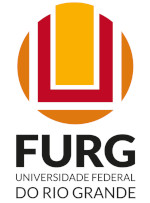Questionando a Narrativa dos Museus da Escravatura
Az Vozes Africanas quebrarão os Silêncios Históricos
DOI:
https://doi.org/10.14295/rbhcs.v13i26.13268Palavras-chave:
Descolonização, Escravatura, Museus comemorativosResumo
Os museus comemorativos têm a possibilidade de representar e reescrever a história. Apesar de qualquer museu ter o poder de tornar uma história visível e de estabelecer a sua interpretação, o tratamento de histórias globais dentro de um sistema orientado pelo Ocidente está sempre a prevalecer. Actualmente, movimentos de reconhecimento da identidade das minorias sociais e étnicas estão a florescer em todo o mundo: comunidades outrora marginalizadas e silenciadas apelam agora a uma análise mais profunda da construção da identidade, questionando e reescrevendo a sua história. Como estudo de caso do meu doutoramento, trouxe o Museu Internacional da Escravatura de Liverpool para Angola, a fim de adquirir uma leitura alternativa da exposição mais premiada do mundo, e dar voz a uma audiência até agora não ouvida. Visitantes de Angola – de cujas costas milhões de africanos escravizados foram enviados para as América – viraram finalmente a perspectiva interpretativa expressando as suas opiniões.
Downloads
Referências
Referências bibliográficas:
ANDERSON, Benedict. Imagined Communities: Reflections on the Origins and Spread of Nationalism. London: Verso, 2006.
BAL, Mieke. Telling, Showing, Showing Off, in Critical Inquiry, 18,3 (Spring 1992): pp. 556-94, 1992.
BARTHES, Roland. From Work to Text, in Image/Music/Text. London: Fontana, pp. 155–64, 1977.
BASSIL, Noah. The Legacy of Colonial Racism in Africa, in AQ: Australian Quarterly, 77(4): 27–32, 2005.
BENJAMIN, Richard. Museums and Sensitive Histories, the International Slavery Museum, in Araújo Ana Lucia, ed., Politics of Memory. Making Slavery Visible in the Public Space. London: Routledge, pp. 178-96, 2012.
CARBONELL, Bettina Messias. Museum Studies: an Anthology of Contexts. Malden, MA: Blackwell Publishing, 2004.
CLIFFORD, James. Museums as Contact Zones, in Boswell David and Evans Jessica, eds., Representing the Nation: A Reader – Histories, Heritage and Museums. London: Routledge, pp. 435-57, 1999.
-------------. The Predicament of Culture: Twentieth-century Ethnography, Literature, and Art. Cambridge, Mass.: Harvard University Press, 1998.
DILENSCHNEIDER, Colleen. People trust museums more than newspapers. Here is why that matters right now. IMPACTS Experience. Web, 26 Apr. 2017. Disponível em: https://www.colleendilen.com/2017/04/26/people-trust-museums-more-than-newspapers-here-is-why-that-matters-right-now-data/, acesso em: 01/07/2021.
DUNCAN, Carol. Civilising Rituals: Inside Public Arts Museums. London: Routledge, 1995.
FOUCAULT, Michel. The Archaeology of Knowledge. London. New York: Routledge, 1972.
HIRA, Sandew. Decolonizing the Mind. The Case of the Netherlands, in The Hague, International Institute for Scientific research, 2010.
HOOPER-GREENHILL, Eilean. Museums and the Interpretation of Visual Culture. London and New York: Routledge, 2000.
-------------. Museums and Education: Purpose, Pedagogy, Performance. London: Routledge, 2007.
INGOLD, Tim. The Art of Translation in a Continuous World, in Pálsson, Gísli, ed., Beyond Boundaries: Understanding, Translation and Anthropological Discourse. Oxford: Berg, pp. 210-30, 1993.
MACDONALD Sharon. A Companion to Museum Studies. Oxford, Blackwell, 2006.
MACGAFFEY, Wyatt. Structural Impediments to Translation in Art, in Translating Cultures: Perspectives on Translation and Anthropology. Eds. Paula G. Rubel and Abraham Rosman. Oxford: Berg, pp. 260–61, 2003.
RIBEIRO, Djamila. O que é lugar de fala?. Belo Horizonte: Letramento, 2017.
SANSONE, Livio. The Dilemmas of Digital Patrimonialization: The Digital Museum of African and Afro-Brazilian Memory, in History in Africa, Vol. 40: 257–73, 2013.
SILVERSTONE, Roger. Heritage as Media: Some Implications for Research, in Heritage Interpretation. Vol. 2: The Visitor Experience. Ed. David L. Uzzell. London: Belhaven Press, pp. 138–48, 1989.
SIMINE, Silke Arnold-de. Mediating Memory in the Museum. Trauma, Empathy, Nostalgia. London: Palgrave Macmillan, 2013.
STURGE, Kate. The Other on Display – Translation in the Ethnographic Museum, in Hermans, Theo, ed., Translating Others. Vol.2, Manchester: St. Jerome Publishing, pp. 431-40, 2006.
-------------. Representing Others: Translation, Ethnography and the Museum. Manchester, St. Jerome Publishing, 2007.
TROUILLOT, Michel-Rolph. Silencing the Past: Power and the Production of History. Boston: Beacon Press, 1995.
WALLACE, Elizabeth Kowaleski. The British Slave Trade and Public Memory. New York, Chichester: Columbia University Press, 2006.
Downloads
Publicado
Como Citar
Edição
Seção
Licença
Copyright (c) 2021 Alessandra Ficarra

Este trabalho está licenciado sob uma licença Creative Commons Attribution 4.0 International License.
Direitos Autorais
A submissão de originais para a Revista Brasileira de História & Ciências Sociais implica na transferência, pelos autores, dos direitos de publicação. Os direitos autorais para os artigos publicados nesta revista são do autor, com direitos da revista sobre a primeira publicação. Os autores somente poderão utilizar os mesmos resultados em outras publicações indicando claramente a Revista Brasileira de História & Ciências Sociais como o meio da publicação original.
Licença Creative Commons
Exceto onde especificado diferentemente, aplicam-se à matéria publicada neste periódico os termos de uma licença Creative Commons Atribuição 4.0 Internacional, que permite o uso irrestrito, a distribuição e a reprodução em qualquer meio desde que a publicação original seja corretamente citada.













